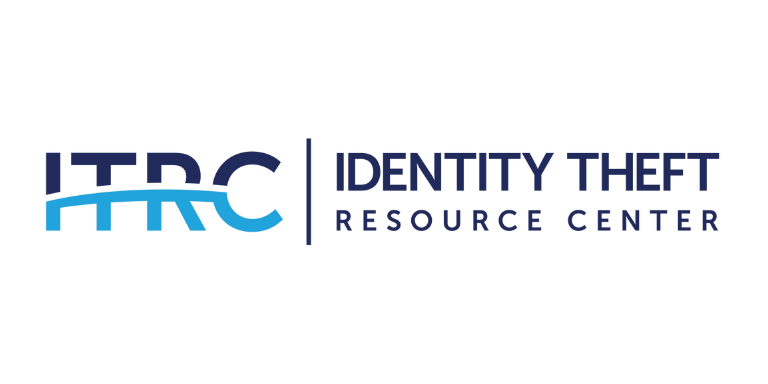Instructions for Identity Theft Victims
Once you discover you are the victim of identity theft, keep a written log of every phone call, copies of all correspondence and records of expenses associated with managing your identity theft case.
ID Theft Case Management Log - EXCEL
- Order a FREE copy of your credit report from all three credit reporting bureaus. (Experian, Equifax and TransUnion)
To order your once yearly FREE report, visit www.annualcreditreport.com, or call 1-877-322-8228. (You will also be entitled to additional free credit reports as a victim of Identity theft.)
By ordering your report you will be able to determine whether there are any additional fraudulent accounts and/or inquiries that you need to report to law enforcement and the credit reporting bureaus. - Complete an ID Theft Affidavit.
ID Theft Affidavit and Instructions - PDF - File a preliminary police report with the law enforcement agency that services the jurisdiction in which you live or work.
Supply the law enforcement agency with a copy of your completed ID Theft Affidavit and any supporting documentation you have collected. These documents will be included with your report and evaluated for follow-up by the reporting agency and/or forwarded the agency(s) where the crime(s) occurred. (California Penal Code section 530.6)
Obtain a copy of your police report. You will need to provide a copy of this report to each of the creditors and credit reporting bureaus when reporting the fraud. - Report the fraud to the three major credit reporting bureaus and place a preliminary "fraud alert" on your credit files. A fraud alert notifies a creditor to contact you at a specific phone number before granting credit.
Experian. P.O. Box 9532, Allen, TX 75013
www.experian.com or 1-888-397-3742.
TransUnion. P.O. Box 2000, Chester, PA 19016-2000
www.transunion.com or 1-800-680-7289.
Equifax. P.O. Box 740241, Atlanta, GA 30348
www.equifax.com or 1-800-525-6285.The fraud alert will only remain in place for 90 days. Protect yourself by extending the fraud alert to 7 years. A 7 Year Fraud Alert Request must be done in writing and include a copy of your police report. (See template letter)
7 Year Fraud Alert Request-Equifax - WORD
7 Year Fraud Alert Request-Experian - WORD
7 Year Fraud Alert Request-TransUnion - WORD***A fraud alert is only as good as the creditor who sees it. You may also “Freeze” your credit files for free, which prevents a creditor from even viewing your credit history, so credit will not be granted without you personally lifting the “Freeze”. A credit freeze may be done in writing or online.
https://www.freeze.equifax.com/
https://www.experian.com/freeze/center.html
https://www.transunion.com/credit-freeze/place-credit-freeze
Credit Freeze Instructions
Follow up with "Blocking" letters to each of the three credit reporting bureaus requesting that all inquiries, fraudulent accounts, or collection information, as a result of fraud, be removed from your credit files. (See blocking letter templates)
Equifax Blocking Letter - WORD
Experian Blocking Letter - WORD
TransUnion Blocking Letter - WORD - Call Creditors and dispute fraudulent charges and any new accounts that the thief opened in your name. Request documents associated with the fraudulent account and/or transactions.
Tell the creditors that you are the victim of identity theft and ask them not to hold you responsible for new accounts opened by the thief or fraudulent charges made on your existing accounts. Ask the creditors to give you copies of documents associated with the new accounts or fraudulent charges, which you are entitled to by law. (530.8 PC)
Follow up your phone call with a letter to the creditors, reiterating what you said in your phone call. (See dispute letter templates)
Dispute Letter for Existing Accounts - WORD
Dispute Letter for New Accounts - WORD - If you are contacted by a collection agency…
Tell the debt collector you are the victim of identity theft, that you dispute the debt, and are not responsible for it. Even if the debt collector assures you that they have relieved you of the debt, send the debt collector a certified follow-up letter, within 30 days, reiterating what you said or they may transfer your debt to another debt collector. (See collection agency dispute letter template)
Collection Agency Dispute Letter - WORD
7. If your checks, ATM card or bank account information is lost or stolen or a bank account is opened using your personal information:
Call the bank and close your bank account. Open a new account with a new account number. Tell the bank you want to use a new password for access to your new account.
Contact the major check verification companies listed below and ask them to notify retailers who use their databases not to accept checks on your closed account. (If you do not take this step retailers will accept the check then attempt to collect from you when the check is returned "Account closed".)
If you think a checking account was opened using your name, order a free copy of your ChexSystems report. Consumer Disclosure Report You can call 1-800-428-9623 to dispute any inaccurate information.
- Telecheck: 1.800.710.9898 www.telecheck.com
- Certegy, Inc: 1.800.237.3826 www.askcertegy.com
- SCAN: 1.800.262.7771
8. If you are wrongly accused of a crime committed by an identity thief:
There is a special database in the California Department of Justice that can help victims of "Criminal Identity Theft", which occurs when a suspect in a criminal investigation identifies themselves using the identity of another, innocent person.
9. When your child's identity is stolen:
Children are the fastest growing group of identity theft victims.
10. Identity Theft and the Deceased:
The deceased are frequently targets of identity theft.
11. 'Active Duty' Alert Helps Protect Military Personnel from Identity Theft:
12. Home Title Theft:
Some companies offer a paid service to protect the title of your home. However, Alameda County offers you this service for FREE. Alameda County automatically sends a letter to your address of record ANYTIME there is a change to your title confirming that you have made this change, so there is no need to pay for this service. If you should receive a notice and you have not made changes to your title, you must act immediately and report the fraudulent activity so suspects cannot take loans against or sell your property.
13. Avoid Mail Theft:
Obtain a locking mailbox or P.O. Box or digitally preview your mail and manage your packages with the US postal service so you know if your mail has been stolen. To sign up for digital mail previews, please click the link below.



